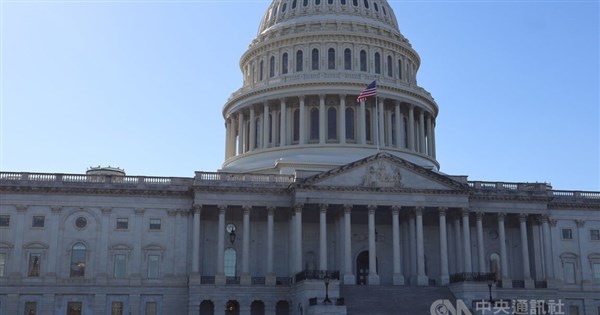Taipei, April 1 (CNA) A bipartisan group of American lawmakers has reintroduced the Taiwan International Solidarity Act in the U.S. House of Representatives on Monday (U.S. time) after the pro-Taiwan legislation previously stalled in the Senate in 2023.
The act “encourages the U.S. to work with allies and partners to oppose the People’s Republic of China’s efforts to undermine Taiwan’s diplomatic relationships and partnerships globally,” according to a press release from the office of Representative Gerry Connolly, a Democrat, who introduced the bill.
The legislation “clarifies” that U.N. General Assembly Resolution 2758 — which Beijing has cited as a legal basis for its territorial claim over Taiwan — “does not preclude the United States from using its vote, voice, and influence to resist the reckless campaign against Taiwan’s place on the world stage,” the press release said.
Connolly said the bill is built on the 2019 Taiwan Allies International Protection and Enhancement Initiative Act to counter China’s “weaponization” of international organizations and “stand in solidarity with the wishes and best interests of the people of Taiwan.”
According to the draft bill, it would require the U.S. government “to use the voice, vote, and influence of the United States” to “advocate […] to resist the People’s Republic of China’s efforts to distort the decisions, language, policies, or procedures of [international] organizations regarding Taiwan.”
“Taiwan has a track record of success in democracy and global health security, and its perspective deserves to be heard,” said Representative Young Kim, a Republican, who co-sponsored the bill.
Kim, who chairs the House Foreign Affairs Subcommittee on East Asia and the Pacific, explained that the act helps demonstrate “through meaningful action” U.S. support for Taiwan’s status in international organizations.
“Taiwan’s participation in global conversation is the world’s gain,” Kim was quoted as saying.
The bill is co-sponsored by Democrats Ami Bera, Dina Titus, Steve Cohen, Thomas Suozzi, Dave Min, Josh Gottheimer, and Brad Sherman, and Republicans Brian Fitzpatrick and Michael Lawler, the press release said.
According to U.S. legislative procedures, the bill will next enter the committee review stage and must pass both the House and Senate before it can be signed into law by the president.
